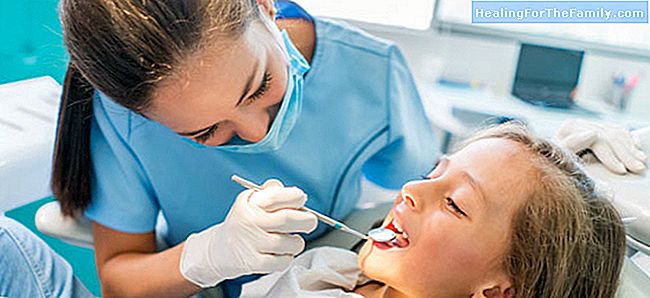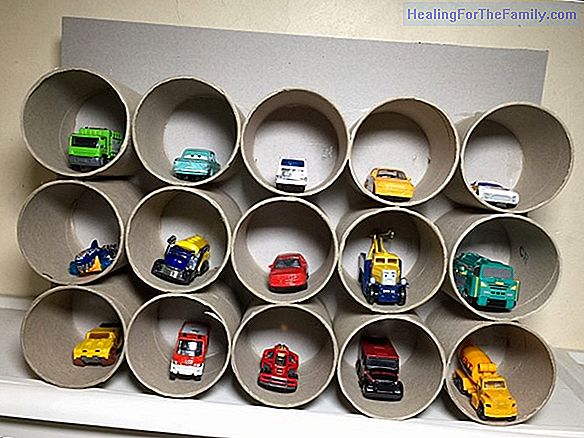Myths about the children's first visit to the dentist
When a parent calls the clinic for the first time to take their child to the clinic, it is necessary to ask them the reason for the appointment. The reasons are different: because he has cavities, because he has fear the dentist, because he is 4 years old and I have been recommended to take him for
When a parent calls the clinic for the first time to take their child to the clinic, it is necessary to ask them the reason for the appointment. The reasons are different: because he has cavities, because he has
fear the dentist, because he is 4 years old and I have been recommended to take him for the first time ... These reasons make me think that there is a lack of knowledge of the parents about the correct age to go to the dentist with their children, and you have to know that one of the factors is currently considered (of course not the only one since caries is a multifactorial disease) related to the appearance of dental caries in children. Therefore, I want to give you a series of important tips
about the child's first visit to the dentist and to reveal some myths about the children's first visit to the dentist. Myths about the children's first visit to the dentist There are many
myths

about the first visit to the dentist of the children to be unveiled. Here I leave some questions that parents always ask me in their first visit to the dentist with the child. 1- The child has to go to the dentist after 3 or 4 years. False. Until a few years ago, the recommendation was to go to the dentist for the first time around
3-4 years
of age, since at that age a child has all his teeth in his mouth and enough capacity to understand and adapt to the dental consultation. Currently this reality has changed, and every child should visit the dentist for the first time after the eruption of the first tooth or during the first año year of life . Always remember this formula 1 + 1 = 0 (first visit to the dentist with the eruption of the first tooth will result in zero tooth decay).
2- Children have cavities from six years old. False. There is a worrying percentage of children with early onset caries, which is the one that appears in children undersix years
. And it is already considered a
serious problem of public health, not only because of its frequency, but also because of its important physical consequences and the socio-economic repercussions that they entail.3- You have to go to the dentist when a tooth bothers us. The first and most important thing is to make a drastic change in thinking
, so never forget this phrase, "you have to go to the dentist not because a tooth hurts, but so that it never hurts".
The first visit to the dentist aims to establish a "Dental Home"adequate and effective, that is, a close and continuous relationship between pediatric dentist-child-family in order to strengthen ties, educate and maintain good oral health since childhood.
At the first visit, a clinical examination of the child's mouth will be performed, an individual assessment of caries risk will be determined, parents will be given an early orientation on diet and dental hygiene, and the necessary periodic reviews will be scheduled.
4- Can I take you to any type of dentist? Do this reflection, if you do not take your son to your same doctor, why are you going to take him to the same dentist? Therefore, just as there is Pediatrics in Medicine, the figure of the Pediatric Dentist (child dentist) emerged with a very special purpose in Dentistry. The practice of Pediatric Dentistry is governed by a
basic philosophy
but fundamental, "the ability to treat the child, not the tooth". The children present a series of aspects (age, personality, emotions, previous experiences, etc.) that significantly influence their ability to face a dental appointment for the first time. Therefore, it is the Pediatric Dentist who has the mastery of
guiding the child through the different dental procedures and, consequently, promoting a positive dental attitude and behavior that will guide them towards good oral health in their adult age.












